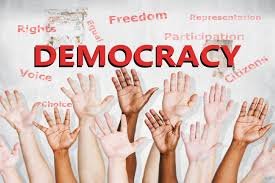
What are some factors that have contributed to the perceived failures of democracy in Sri Lanka?
There are several factors that have contributed to the perceived failures of democracy in Sri Lanka. Some of these factors include Political Instability, Sri Lanka has experienced frequent changes in government and coalition politics, leading to a lack of continuity in policy-making and governance. This can undermine the effectiveness of democratic institutions.
Ethnic and Religious Divisions: Sri Lanka is a diverse country with multiple ethnic and religious groups. Historical tensions and conflicts between these groups have strained democratic processes and led to political polarisation. This can hinder cooperation and trust among different communities.
Corruption and Governance Issues: Corruption has been a persistent problem in Sri Lanka, affecting various sectors, including politics. Corruption erodes public trust in democratic institutions and undermines the rule of law. It also hampers efforts to promote transparency, accountability, and good governance.
Human Rights Concerns: Sri Lanka has faced allegations of human rights abuses, particularly during the civil war that ended in 2009. The perceived lack of accountability for these violations raises concerns about the protection of human rights and the independence of the judiciary.
Limited Civic Engagement: While Sri Lanka has a vibrant civil society, there have been challenges in fostering widespread civic engagement. Factors such as limited access to information, restrictions on freedom of expression, and low levels of political participation in certain segments of the population hinder the full realisation of democratic ideals.
These factors are complex and interconnected. Addressing these challenges requires a comprehensive approach that involves strengthening democratic institutions, promoting reconciliation and inclusivity, tackling corruption, protecting human rights, and fostering civic engagement.






